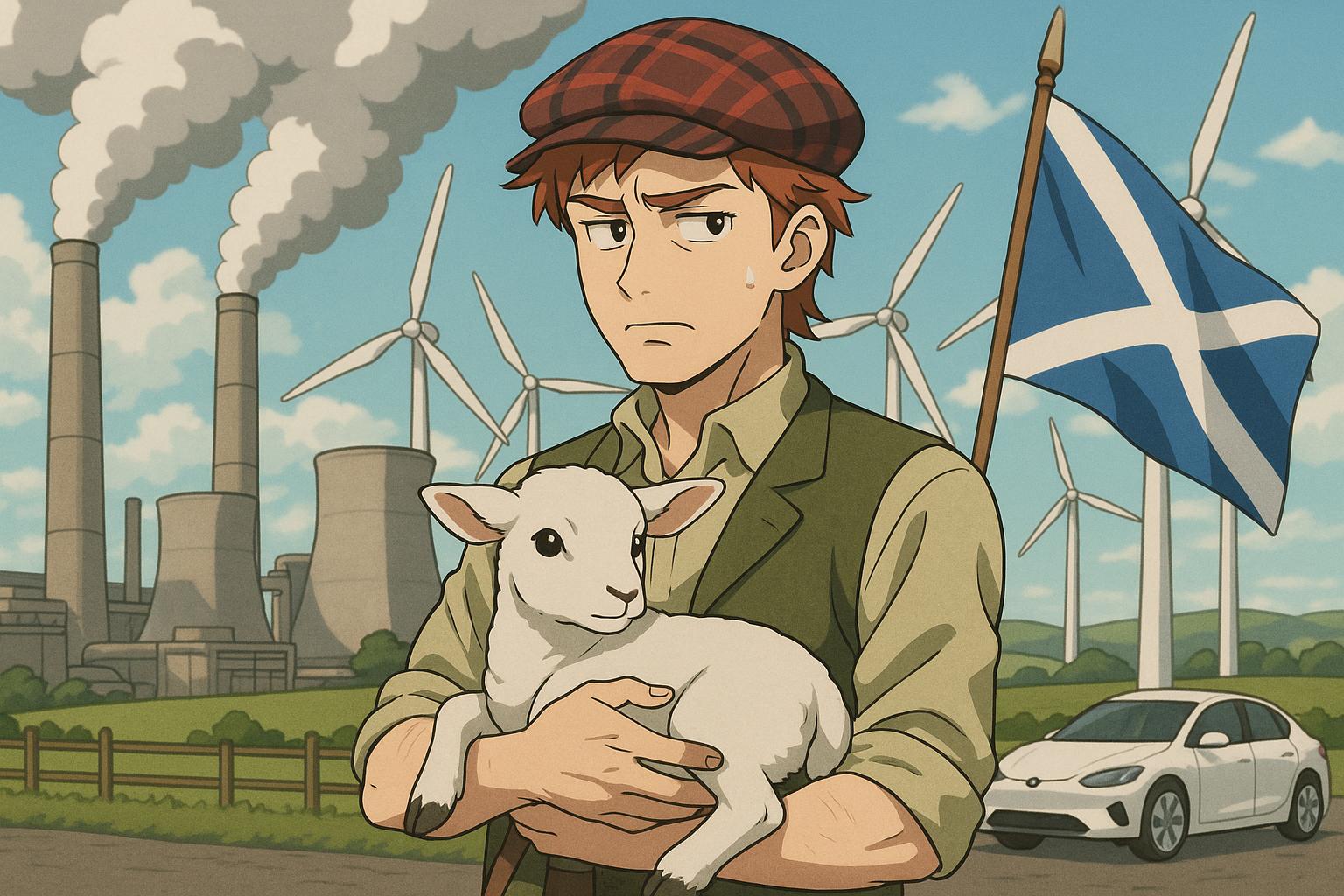Bismarck once famously asserted that politics is “the art of the possible,” yet today, it increasingly resembles the art of maintaining delusion in the face of stubborn realities. This is starkly evident in the ongoing conversations surrounding gender identity, where the controversial notion of transwomen being classified as women blatantly contradicts biological facts. Similarly misguided thinking permeates the Scottish National Party’s (SNP) vision of independence, which is based on the unrealistic belief that Scotland can sever ties with the UK without facing severe fiscal consequences. The aspirations for independence gloss over the hard truths that any nation must confront regarding taxation and expenditure.
As the nation grapples with pressing issues of tax and spend, the rhetoric exemplifies a detachment from reality. There's a palpable consensus that government spending needs urgent reform, yet the public remains resistant to cuts in services they value. Proposals often target areas fraught with political contention but minimal financial impact, such as arts funding—a prime example of smart political maneuvering that distracts from genuine fiscal responsibility. Voters display a universal desire for tax cuts while expecting others to shoulder the financial burden. Britons crave the high public service spending typical of Nordic countries, yet simultaneously demand the lower taxation seen in the United States.
However, the most bewildering aspect of contemporary policy discourse appears in the battle against climate change, as showcased by the SNP's reckless push for arbitrary Net Zero targets. Recent reports indicate that the SNP aims to drastically reduce meat consumption in Scotland, proposing an outlandish 30 percent cut as part of their misguided climate commitments. Such drastic measures could decimate the nation’s agriculture sector, putting the livelihoods of family farms—integral to Scotland’s heritage—at risk. The very suggestion that Scots should curtail their beloved Sunday roast to align with the harmful dictates of eco zealots encapsulates a troubling disconnect between policymakers and the realities of food production.
The Climate Change Committee (CCC) calls for ambitious targets for the reduction of livestock numbers—projecting a staggering 36 percent decline in sheep and cattle to meet their environmental objectives by 2045. Such sweeping changes rest on the unfounded belief that dietary shifts will significantly impact greenhouse gas emissions. Moreover, recent research from the University of Edinburgh indicates that reducing daily red meat consumption could jeopardize balanced diets, highlighting the need for a nuanced approach that seems utterly absent in current governmental thinking.
Scotland's existing agricultural landscape must reckon with these restrictive targets, where an already subsidy-dependent framework faces unprecedented challenges. This creates a dilemma—implementing extreme dietary guidelines while guaranteeing public access to nutritionally rich food. As the SNP stubbornly pursues these ambitious goals, one must ask: will the economy of rural Scotland be sacrificed on the altar of misguided climate ambition?
It is critical to ponder the broader implications for personal freedoms and economic recovery. The same regulatory fervor that seeks to curb meat consumption extends to the transportation sector, with the CCC aiming for a staggering 60 percent of cars on Scotland’s roads to be fully electric by 2035—a sharp increase from a mere 2.2 percent today. This transformative ambition implies coercive measures to accelerate the transition from older vehicles, already evidenced by punitive fines on non-compliant drivers in urban areas. Moreover, the drive to modernize Scotland's vehicle fleet is starkly at odds with the current infrastructural reality—where analysis suggests the nation may miss its target of 30,000 electric vehicle charging stations by a staggering 12 years.
As the SNP grapples with these lofty ambitions, the political will to enforce such sweeping reforms appears dubious at best. The expectation that 92 percent of gas boilers will be replaced by electric heat pumps in domestic settings by 2045 increasingly seems untenable. Many critics have pointed out that these ambitious proposals rely on retrofitting homes designed around gas heating, presenting formidable logistical and financial hurdles.
In light of this, one must question why Scotland would embark on such ambitious climate initiatives when major economies like China and India continue to develop carbon-neutral technologies while bolstering fossil fuel industries. The efficacy of such stringent policies often resembles mere symbolic gestures, aimed at conveying virtue rather than yielding tangible outcomes. The harsh realization is that sacrificing quality of life, economic stability, and individual freedoms does not serve society's long-term interests.
In navigating this turbulent landscape, a balanced perspective is essential—one that acknowledges the reality of climate change while prioritizing economic prosperity. Advocating for the expansion of oil and gas exploration in the North Sea may provide a viable pathway to wealth generation that underpins legitimate solutions to climate challenges. Unless a more pragmatic approach is adopted, current Net Zero initiatives risk becoming another example of policy failure, driven more by ideology than by practicality. The ultimate challenge lies in reconciling respect for the environment with the necessity of enhancing quality of life and economic freedom, cultivating solutions that truly serve the interests of all.
Source: Noah Wire Services
